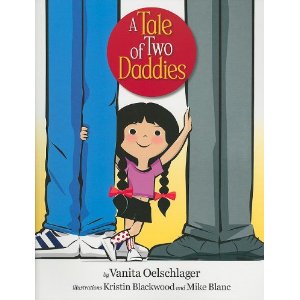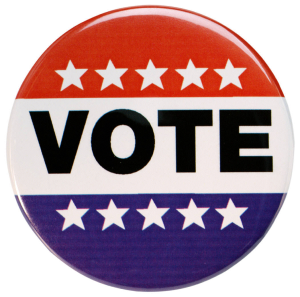
I came across the article “Gay marriage is now the issue through which the elite advertises its superiority over the redneck masses” by Brendan O’Neil via Facebook. In it, O’Neil argues an interesting point on this important issue. However, the point he is arguing sounds hollow from the start—at best a distraction from the main issue at hand. Even if one assumes his thesis deserves the floor for debate, it is readily shown that there is little to back up its claims.
(I assume that O’Neil is/spends most of his time in England. I am not familiar with the pulse of marriage equality across the pond, but I will assume, as O’Neil states in his article, that the status and magnitude of the issue is comparable between America and England, and will use American facts in my response. Bold text is quoted from the article.)
And yet the remarkable thing is that gay marriage has achieved this hot-potato status without the benefit of a mass movement demanding it,
Six states—Connecticut, Iowa, Massachusetts, New Hampshire, Vermont, New York, and Washington DC—allow same-sex marriage. That is 11% of the US population. Also, 3.8% of the US population identifies as gay, lesbian, bisexual, or transgender. In other words, assuming a class size of 27, one student in every classroom in America is not straight. O’Neil also fails to account for the Gay Pride parades across major US cities garnering hundreds of thousands of people, with the San Francisco parade tallying 1.2 million participants. How massive of a mass-movement does O’Neil requires?
… far less any public streetfighting or serious civil unrest by homosexuals determined to get hitched.
What does O’Neil require in order to validate the marriage equality movement? Gays mailing letter-bombs to Justices of the Peace? I doubt that will happen anytime soon.
This theme, repeated throughout this essay, is my biggest problem with O’Neil’s argument. O’Neil comes dangerously close to stating that the validity and morality of an issue are measured by how much blood has been shed. Specifically he states that the level of attention or status of the issue of marriage equality is unduly warranted due to lack of physical abuse or social unrest.
To be sure, a trail of blood is normally a good sign of social injustice. But does the number of poster-children actually decide the morality of an issue? Is something not deemed morally wrong until crosses are burned in people’s front yard? Viewed from the other side of the coin, is slavery moral when the masters treat their slaves well?
If morality is not decided by how egregious one is abused, then neither should the level of interest in a (moral) topic be limited by the amount of bloodshed. O’Neil should be pointing out how much traction this topic has achieved compared to the amount of bloodshed, as compared to the African-American civil rights movement, as proof of how far we have come as a society. Instead he uses the extent of discourse concerning marriage equality as evidence that there is nothing worth talking about.
That is not to say there has not been bloodshed. I’m sad to admit that I spent the first 25 years of my life never even hearing of the Stonewall Riots of 1969. It is a fact that the Stonewall bar patrons did not start a fight over the right to marry. In truth they didn’t start the fight. Instead they fought over the right to have a beer and to exist.
O’Neil is correct in pointing out that no analogy is perfect; there are differences between the fight for LGBT civil rights and the fight for African-American civil rights. But the ‘color issue’ tangibly affected African-Americans every step of their lives: steps to the colored bathroom, steps to the (farther) colored public schools, and steps to the back of the bus. Getting married, however, is not something you do every day of your life. Most people get married one to three times, or 0.01% of your days on earth. This may explain why O’Neil does not see a repeat of mass bus boycotts, etc., that he implies are necessary to justify the marriage equality movement. But as stated above, the (perceived) amount of unrest does not decide the morality of an issue.
A quick way to evaluate the validity of a mathematical equation is to test the boundaries, i.e., what happens when X is zero or a trillion. Viewpoints and premises can also be similarly tested. Let’s examine O’Neil’s premise in the reverse. What if there was no ‘Black Power’ movement? What if African-Americans in the 50’s and 60’s ‘protested’ only in obedience, fought only in prayer, and led not marches but only by example? Would this change the morality of the issue? Should this change how much discussion, or the fervor of said discussion, that is warranted for such a moral issue?
The speed and ease with which gay marriage has gone from being a tiny minority concern to become the No 1 battle in the modern culture wars has been truly remarkable – and revealing.
I would not call the battle for marriage equality easy, especially since it is far from over. And marriage equality has had its share of major setbacks (Prop 8). However, O’Neil rightly points out that this civil right appears to be moving in the right direction faster than previous civil rights such as African-American emancipation and women’s suffrage. But the obvious supporting argument for such a claim—technology—is passed over in favor of the claim of a new, audible ‘secret handshake’ to the world of the elite.
I was born in 1980, so maybe the more veteran readers will have an easier time with this exercise than me. But imagine the 1960s with an iPhone, Twitter, and status updates. Imagine if everyone knew of Martin Luther King’s death within minutes. Imagine if Timothy Tyson or another citizen of Oxford, NC, caught the murder of Henry Marrow on video. Imagine if instances of police brutality were broadcasted to the world long before Rodney King. In such an alternate universe, I damn well hope equality comes that much sooner.
The thing motoring the gay-marriage campaign, its political engine, is not any longstanding desire among homosexuals to get married
Such is a very bold statement, to which I have no idea how O’Neil would defend. It did remind me of the old truism that homosexuals have always had the right to marry; just not the person they want to.
[marriage equality’s] driving force, the reason it has been so speedily and heartily embraced by the political and media classes, is because it is so very useful as a litmus test of liberal, cosmopolitan values.
I thought the litmus test was shopping at Whole Foods?
Those who are against gay marriage … are not seen simply as old-fashioned or wrong-headed, but as morally circumspect, possibly even evil.
I do not view people who are against marriage equality as ‘evil’. I think such a statement is virtually devoid of meaning. Seriously, what type of evil does O’Neil imply? Tonya Harding evil? Hitler evil? Bill Lumbergh evil?
Was a slave owner in the early 1800’s simply old-fashioned? I can understand if one wishes to reduce the culpability on slave owners from back then. (You can adjust the culpability without changing the morality of the action). Likewise, I would hold a modern-day slave owner living in Raleigh with much more contempt than one who lived here 200 years ago. (Again, in both instances the practice is morally wrong.) However, it is exactly for this reason—the fact that we live in a modern, developed society— that there should be less ‘grace’—the withholding of justice—for any bigotry that hiding under the brim of old-fashioned thinking.
Indeed, liberal campaigners frequently claim that gay marriage, unlike every other issue in the world, is a straightforward black-and-white matter on which there is only one right answer – “yes”.
<???> Here O’Neil completely loses me. So maybe is a viable answer? Yes in States that end in ‘y’? No if you voted for Palin?
O’Neil doesn’t state what these possible shades of gray to the marriage equality question are. The only gray solution I can think of is to have each State individually decide the morality of same-sex marriages. (Sounds funny when you say that out-loud.) Again, this method of ‘majority morality’ was tested out in the 1800’s with slavery, as each State was allowed to separately decide the morality of human property for most of our country’s first century.
[marriage equality’s] transformation instead into a clear-cut moral matter
Again, I’m not sure what O’Neil is arguing here. Is he stating that marriage equality is NOT a moral issue? That would be a tenuous (and very unique) position. Is he saying marriage equality is a moral issue, but just not ‘clear-cut’? If so, what are the complicating factors? Abortion has many complicating factors—rape, endangerment of the mother’s life, genetic conditions such as Down’s syndrome, etc.—that enter the discussion. What complicating factors are relevant to gay marriage? Child adoption? All I can say is that if something were to happen to myself and my spouse, I would want my son and daughter to be raised by whichever person or couple had the most love for them.
In this sense, supporting gay marriage has become less a declaration of truly democratic instincts and more a kind of provocation.
O’Neil is wrong in implying that people choose to support marriage equality because it is their golden ticket to an exclusive club. People support marriage equality for the same reason that other people oppose marriage equality: both believe it is the right position. Sure, anyone can be a dick—even those on the side of morality. And yes, broadcasting your opinion on everything can be confrontational. But when human rights are up for vote on the ballot (and by extension up for sale), a public discussion in not only permissible, it is what a responsible and active citizenry—on both sides of the issue—must do. If it happens that said discussions turn into shouting matches, such is proof that we should spend more money educating students in the classics.
This is the reason gay marriage has become so central to modern political debate in America and Britain, despite there being almost no societal drive or urge behind it – because it lends itself brilliantly to expressions of a very elitist sensibility.
If O’Neil is correct in stating that there is almost no societal drive for marriage equality, then why did the Mormon Church spend $190,000 directly and between 40 to 70 percent of the total out-of-state funding through its parishioners toward California’s Prop 8?
Finally, I have never completely understood the use of elitist as an insult. I know what it means, but I can’t understand why people—strangers—are deemed elitist because of their IQ, where they go to school, or what party the vote for. One’s IQ is unfortunately largely out of one’s control; everyone goes to the best school one can afford; and what sense does it make to call one party the elitist’s party outside of an oligarchy? If I am elite for wanting to ‘share’ my rights with others, I wish that everyone was more ‘elite’.
*********************
Note: My kids and I both enjoyed the book pictured at the top.








